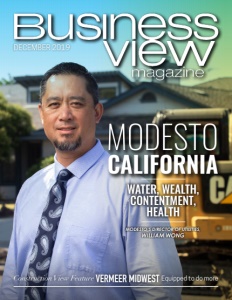The shift from a knowledge economy to a social economy has placed a burden on leaders to add a new skill set – one that Stephen Miles defines as “SocQ.” “SocQ is a DNA issue for an organization, just like ethics or compliance,” says Miles, CEO of The Miles Group/TMG, in his new podcast on the topic.
“People in the organization must be equipped to handle the fact that every individual on this planet is a broadcaster of information. It’s all viral and instantaneous and puts out there, for all the world to see, the much greater expectations on companies today around social responsibility.”
The podcast episode – SocQ: The New Leadership Skill Required for the Social Economy – is part of TMG’s C-Suite Intelligence podcast series. The new series provides tips and advice from the TMG executive coaches drawn from years of working with top-level and emerging talent in companies ranging from the largest Fortune 50 global corporations to high-growth start-ups backed by VC firms and private equity.
What is SocQ, and why do executives need it now?
As he was coaching CEOs, Miles developed the concept of SocQ – short for “social intelligence quotient” and pronounced “sōce-q” – to describe the ability to authentically communicate on a broad level one’s empathy and sensitivity around an event, position, or action, taking into account society’s response to the issue. “Whether it’s taking a strong stance around the NRA or LGBTQ issues, or developing a company policy around things such as cage-free eggs, or fur or plastic waste, you aren’t stating a position in a vacuum,” he says.
“In the 20th century, Daniel Goleman popularized the concept of emotional intelligence, or EQ; companies became eager to hire executives who displayed emotional empathy – the ‘one-to-one’ connection with the person sitting across from you,” says Miles.
“But our economy is changing into what is being called the ‘social economy.’ This move changes the model for executives around how they need to communicate,” says Miles. “When all individuals can weigh in on all topics, you have no place to hide. Comments become viral, and your brand and reputation are at greater risk.
“If you find yourself in a crisis event, you must have a foundational purpose or values as a leader, and as a company, to guide you through the countless messages you need to put out there. Leaders need to develop a ‘SocQ muscle’ to help them authentically develop and communicate this purpose.”
Why employees across the organization need to develop SocQ
“Creating awareness of the importance of SocQ at many levels below the CEO is extremely important,” Miles says. “Usually the ‘spot fires’ associated with a crisis event do not happen in the CEO office. They can and do, but generally it’s front-line executives who are dealing with customers out there in real time.
“The employees who are out there solving problems in call centers, in retail, wherever they happen to be – these are the ones there when an issue happens. And the more awareness that you can have around that and the more tools that you have at your disposal, the better you can effectively address the situation immediately when it arises.”
In the podcast, Miles describes the various scenarios where SocQ is most frequently needed and how listeners can begin to develop SocQ – a skill that can, in fact, be learned.
Other episodes in TMG’s C-Suite Intelligence podcast series include:
- Managing Your Most Difficult But Most Valuable Employees
- When the Right Person Is in the Wrong Role
- The Importance of Asking Questions
- Fostering Idea Conflict
- The Talent Private Equity Firms Are Looking For
- How to Avoid Having Another Worthless Meeting
- Working For a Tough Boss
- Protecting Your Job in a Merger or Acquisition
- Stasis vs. Growth Mindset
- How the Smartest CEOs Are Preparing for the Next Recession


